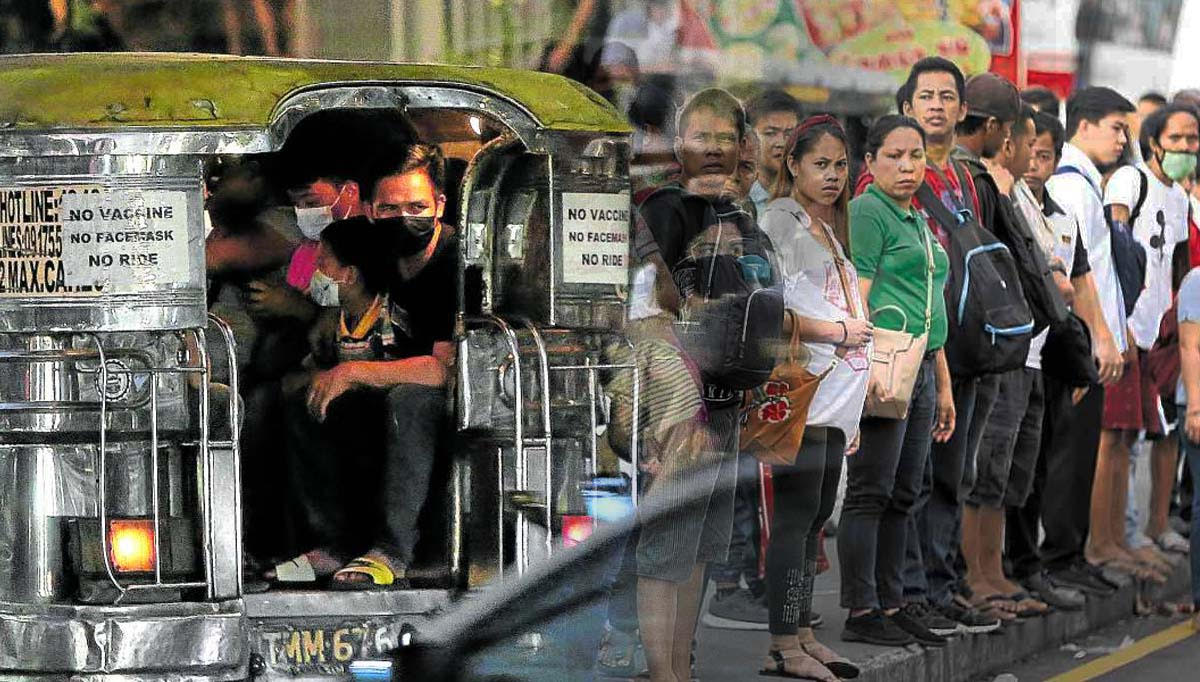
Composite image showing commuters packed in jeepneys and waiting for their rides. FROM FILE PHOTOS
The Land Transportation Franchising and Regulatory Board (LTFRB) has extended the franchises or provisional authority of individual jeepney operators up to June 30, giving them more time to comply with the consolidation requirements of the government’s jeepney modernization program.
Around 61 percent, or 96,380 of the 158,000 target jeepneys nationwide, have complied with the consolidation requirements of the public utility vehicle (PUV) modernization program, according to the LTFRB.
Joel Bolano, LTFRB technical division chief, said that across the country, there are already more than 5,300 units of modernized jeepneys operating.
The agency on Monday approved Memorandum Circular No. 2023-013 extending the provisional authority of individual operators of traditional jeepneys to June 30. The original deadline was scheduled at the end of March.
After which, only those who are part of the consolidated entity—either a cooperative or corporation—will be allowed to have their franchise extended until Dec. 31.
“What we’re targeting is just for them to comply [with] the industry consolidation. Again, it does not mean that once you join [a cooperative], you need to change your unit right away,” he said.
“They will operate the [unit] whether modern or traditional until December as long as they are consolidated,” he said, adding that the agency will have another meeting next week to discuss contingency plans in anticipation of noncompliance of drivers and operators.
Industry consolidation
Bolano underscored that what they were trying to address first was industry consolidation—the first component of the PUV modernization program.
Industry consolidation, according to the LTFRB, is aimed at establishing transport cooperatives and legal entities that will be entitled to benefits, like government subsidies and access to credit facilities.
These groups will be tasked to help in modernizing the PUVs and manage the units in a “systematic and predictable manner.”
Under the Department of Transportation’s Order No. 2017-011, or Omnibus Franchising Guidelines issued on June 19, 2017, only corporations or cooperatives with at least 15 vehicles will be allowed to apply for new routes, restricting jeepneys and other small-capacity vehicles on major roads.
Modesto Floranda, national president of the Pinagkaisang Samahan ng mga Tsuper at Operators Nationwide, said they have nothing against modernization of the transport sector.
However, Floranda said different transport groups are preparing to send their consolidated position paper raising concerns over the possibility of jeepney units being “monopolized.”
“We are open to the idea of having a cooperative, as long as the cooperative will allow the operation of individual franchises for individual units and it won’t be monopolized by a single fleet management or corporation,” he told the Inquirer in a phone interview.